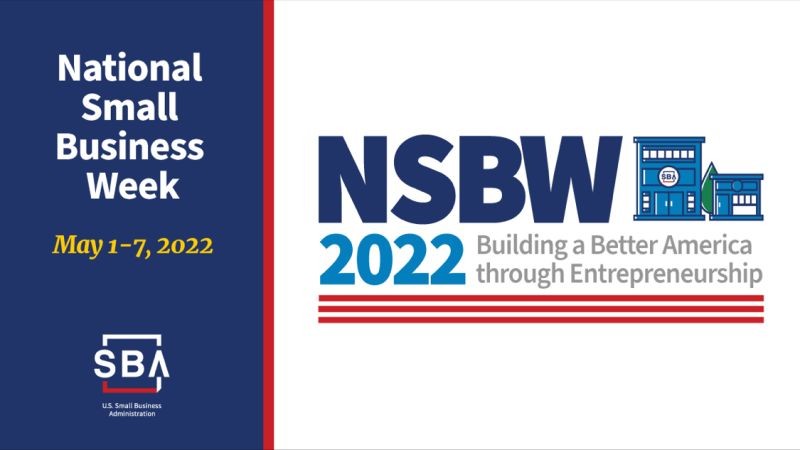Many, including myself, refer to franchising as an industry… even though we know it’s really not an industry. A business model is probably one of the better definitions, but what does that really mean?
The International Franchise Association (IFA) defines a franchise as:
A franchise (or franchising) is a method of distributing products or services involving a franchisor, who establishes the brand’s trademark or trade name and a business system, and a franchisee, who pays a royalty and often an initial fee for the right to do business under the franchisor’s name and system. Technically, the contract binding the two parties is the “franchise,” but that term more commonly refers to the actual business that the franchisee operates. The practice of creating and distributing the brand and franchise system is most often referred to as franchising.
When referring to a franchise, even many within franchising choose from a variety of terms as a point of reference – franchise organization, franchise system, franchise company, franchise brand.
The IFA definition continues:
There are two different types of franchising relationships. Business Format Franchising is the type most identifiable. In a business format franchise, the franchisor provides to the franchisee not just its trade name, products and services, but an entire system for operating the business. The franchisee generally receives site selection and development support, operating manuals, training, brand standards, quality control, a marketing strategy and business advisory support from the franchisor. While less identified with franchising, traditional or product distribution franchising is larger in total sales than business format franchising. Examples of traditional or product distribution franchising can be found in the bottling, gasoline, automotive and other manufacturing industries.
Of course, there are also the varying terms relating to the franchise relationship – franchisee, franchise partner and not to mention the slang, zee. And to the other side of the relationship – franchisor, head office, corporate office, parent company… and yes, zor.
And what’s the difference between franchisor and franchiser?
Confused yet? Maybe the IFA definition will help clear the air:
Franchising Is About Relationships
Many people, when they think of franchising, focus first on the law. While the law is certainly important, it is not the central thing to understand about franchising. At its core, franchising is about the franchisor’s brand value, how the franchisor supports its franchisees, how the franchisee meets its obligations to deliver the products and services to the system’s brand standards and most importantly – franchising is about the relationship that the franchisor has with its franchisees.
Franchising Is About Brands
A franchisor’s brand is its most valuable asset and consumers decide which business to shop at and how often to frequent that business based on what they know, or think they know, about the brand. To a certain extent consumers really don’t care who owns the business so long as their brand expectations are met. If you become a franchisee, you will certainly be developing a relationship with your customers to maintain their loyalty, and most certainly customers will choose to purchase from you because of the quality of your services and the personal relationship you establish with them. But first and foremost, they have trust in the brand to meet their expectations, and the franchisor and the other franchisees in the system rely upon you to meet those expectations.
Franchising Is About Systems and Support
Great franchisors provide systems, tools and support so that their franchisees have the ability to live up to the system’s brand standards and ensure customer satisfaction. And franchisors and all of the other franchisees expect that you will independently manage the day-to-day operation of your businesses so that you will enhance the reputation of the company in your market area.
And franchise locations are independently owned and operated. Yet, the franchise relationship is interdependent… or at least it should be interdependent and not dependent or independent upon… Well, you get it, right?
Franchising Is also a Contractual Relationship
While from the public’s vantage point, franchises look like any other chain of branded businesses, they are very different. In a franchise system, the owner of the brand does not manage and operate the locations that serve consumers their products and services on a day-to-day basis. Serving the consumer is the role and responsibility of the franchisee.
Even more confusing is the difference between a franchise and a license. The IFA explains it correctly below but it’s still confusing unless you can follow the bouncing ball:
Franchising is a contractual relationship between a licensor (franchisor) and a licensee (franchisee) that allows the business owner to use the licensor’s brand and method of doing business to distribute products or services to consumers. While every franchise is a license, not every license is a franchise under the law. Sometimes that can be very confusing.
Now let’s look at the people serving the franchise community. Yep, franchise community is another reference for the franchise list above but let’s move on. Franchise consultants, do they sell or consult? How about franchise brokers, coaches, sales agents, sales representatives, and again, franchise consultants.
Is there embarrassment in being involved in what really is a sales process? To that point, is a franchise sold or awarded? If awarded, along the lines of receiving an award at the Oscars (no Will Smith / Chris Rock jokes, please!), maybe the term should be presenter?
Of course, there are references to segments within franchising such as master franchising and sub-franchising… Which one is correct? And isn’t the sub-franchisor actually the master franchisee? I guess it all depends on which end of the relationship one is on. In any event, these terms aren’t being used as frequently as in the past. Maybe it’s because correctly defining these relationships were confusing. Again, unless you could keep up with the bouncing ball.
Back to the IFA definition:
The definition of a franchise is not uniform in every state. Some states for example, may also include a marketing plan or community of interest provision in the definition. The definition of what is a franchise can vary significantly under the laws in some states and it is important that you don’t simply rely on the federal definition of a franchise in understanding any particular state’s requirements.
Put another way, in a franchise a business (the franchisor) licenses its trade name (the brand, such as BrightStar Care or Sport Clips) and its operating methods (its system of doing business) to a person or group operating within a specific territory or location (the franchisee), which agrees to operate its business according to the terms of a contract (the franchising agreement). The franchisor provides the franchisee with franchising leadership and support and exercises some controls to ensure the franchisee’s adherence to brand guidelines.
How about now – confused yet or are things starting to appear clearer? But wait…
Moving down the chain there are franchise suppliers, service providers and vendors… What’s the difference? Preferred or approved? Is there really a difference?
Franchise services means what, and providing services to who? Franchisee to end-user? Franchisor to franchisee? Franchise service provider to franchisor and/or franchisee? Or are they suppliers as is the reference to an IFA committee of franchise service providers that are referred to as suppliers?
Same can be said of franchise marketing, right? Does marketing in a B2B or B2C scenario but within a franchise environment mean that it’s franchise marketing? Or is franchise marketing actually marketing to franchise candidates?
Speaking about franchise candidates, when is a candidate actually a candidate and not a lead, prospect or just an interested party? Does this fall under franchise sales or franchise development? Or back to the sale versus award question, should it fall under franchise awards. And who’s in charge – the VP of Franchise Sales, VP of Franchise Development, or VP of Franchising? And along the line of the many creative titles nowadays, maybe VP of Franchise Awards??
Then there’s reference to franchise professionals. Is a franchisee a franchise professional? How about if the franchisee is a multi-unit franchisee with 25, 50 or 100 locations? How about a franchise attorney (or is it franchise lawyer)? Are they franchise service providers or seemingly ridiculous to say, suppliers?
If a franchise executive is a franchise professional, at what level of management or leadership does one begin to be considered a franchise professional? How about within the franchise organization itself? How about others within the franchise corporate office if their support is purely administrative as opposed to an admin that actually communicates with franchisees?
Oh, and should the CEO or others senior executives of a franchise company be considered a franchisor as we often refer to them as such at franchise events? And if a franchisor operates corporate locations, should they also be considered franchisees? Yes, that’s a stretch… sorry, but I often hear franchisors claim their locations are treated just like franchise locations and remit the same fees for marketing and hold positions on franchise advisory boards, etc.
Let’s take a last look at the IFA definition:
Investing in a franchise or becoming a franchisor can be a great opportunity. But before you select any franchise investment and sign any franchise agreement, do your homework, understand what the franchise system is offering and get the support of a qualified franchise lawyer.
Although this author firmly believes the International Franchise Association does a great job on behalf of franchising and I’m not sure I could even think of franchising without their tireless efforts to protect franchising, I do believe some efforts must be focused on minimizing confusion around franchising rather than adding to it.
From personal experience with highly educated senior executives at American Express around their ignorance about franchising, my concern always reverts to the individuals investing their life savings not clearly understanding what it is that they’re agreeing to. I’m also concerned that because of confusion, many don’t even consider a franchise as a viable opportunity. But then again, as many franchisors claim and heavily promote, a franchise is like a family, I’m ecstatic more franchisees don’t have BurgerIm as their “family” name.
After all, isn’t it ironic how franchising is the replicating of a system with focus on consistency in image, appearance, product and service from one location to another? Yet, there’s little consistency in the terminology used to define many aspects of franchising.
Note: The IFA definitions referred to above may be accessed HERE. All kidding and sarcasm aside, it really is great information and again, I do truly appreciate all IFA efforts!



















You must be logged in to post a comment.